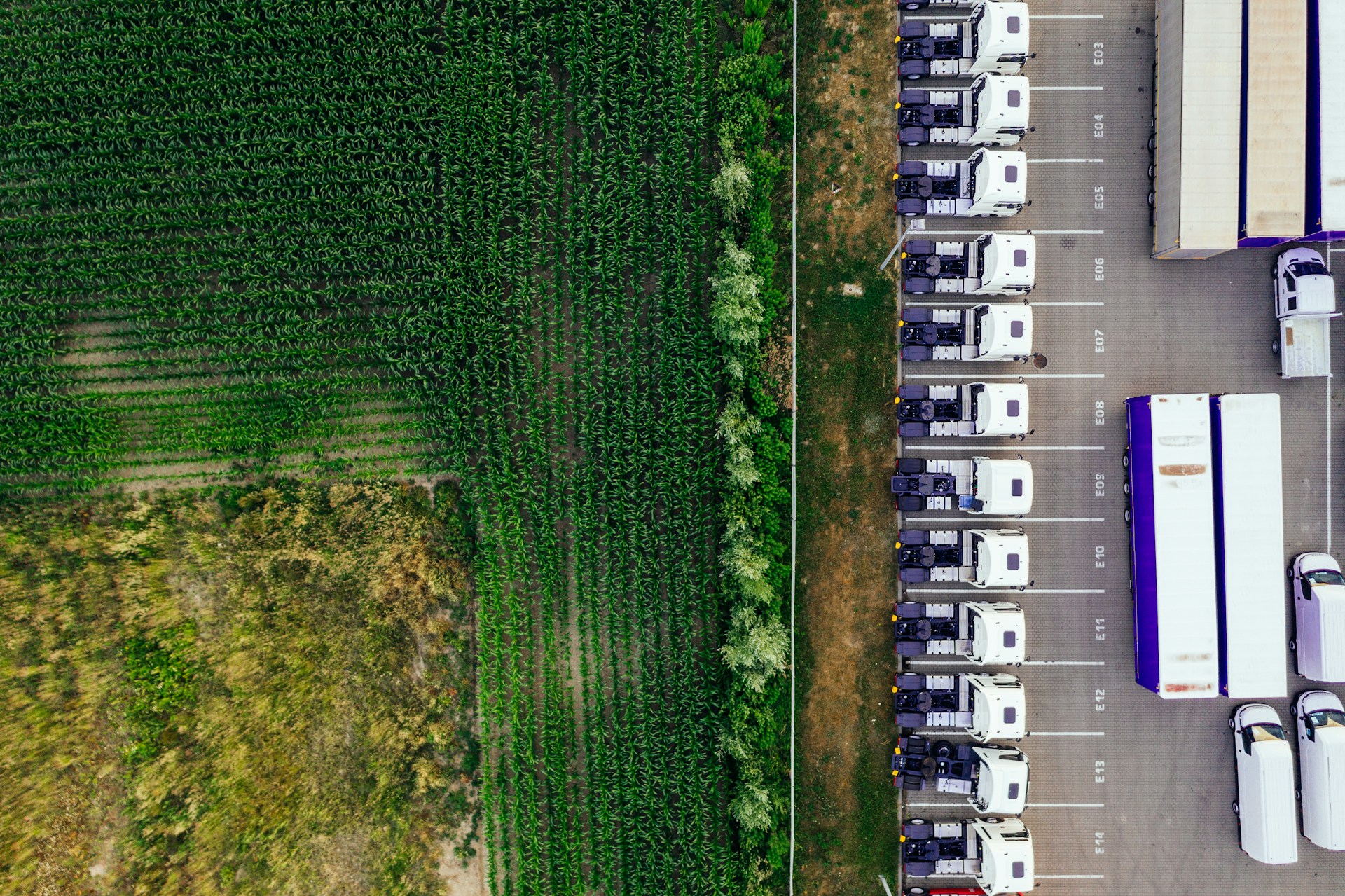
How Fleet Companies Are Leveraging Vehicle Tracking to Increase Productivity in 2025
Fleet Efficiency is the Competitive Advantage of 2025
In 2025, fleet companies are confronting increasing customer expectations, reduced margins, and a more competitive market. Doing more with the same (or less) resources is no longer only wise, it’s necessary.
One of the best means of enhancing operational efficiency among fleet operations is vehicle tracking. No longer a “nice-to-have,” real-time track systems are now essential aids for enhanced productivity, streamlined workflows, and optimising how vehicles and crews work on the road.
- Real-Time Visibility Enables Smarter Decisions
The core benefit of vehicle tracking is real-time visibility. Knowing exactly where every vehicle is at any given time transforms the way operations teams make decisions.
Rather than reacting to problems once they occur such as traffic delays, missed appointments, or inefficient routing, vehicle tracking allows managers to see issues in real-time and respond instantly.
Example:
“With the use of vehicle tracking to detect delays and reroute in real time, companies are able to get more jobs done in a day without adding labour hours.”
Using live location data, fleet businesses can:
Reassign jobs according to vehicles’ current locations
Provide customers with precise ETAs
Divert drivers around traffic spots
Oversee progress on time-sensitive jobs
These real-time pieces of information maintain operations smooth and responsive, and this is particularly valuable when handling high volumes or last-minute schedule changes.
- Minimizing Idle Time and Unproductive Hours
Untracked fleets typically incur lost time whether too much idling, extended stops, non-optimized routing, or unauthorized diversions. Weeks or months down the road, this translates into less output and increased costs.
Vehicle tracking minimizes these inefficiencies by:
- Tracking idle time per vehicle or driver
- Identifying off-route driving or unanticipated stops
- Facilitating time-conscious behavior
- Enabling improved planning for time-on-site
The payoff? More time invested in driving, working, and generating value and less time lost to avoidable downtime.
- Increasing Job Completion Rates
Productivity in fleet businesses is often a matter of how many jobs can be done in a day, per vehicle or crew.
By eliminating inefficiencies and enhancing scheduling precision, vehicle tracking enables:
- Reducing travel time between jobs
- Decreasing response time for emergency calls
- Facilitating precise planning of multi-stop routes
Rather than using fixed, hand-made schedules, managers can shift work dynamically based on who’s available and closest boosting daily job numbers without boosting headcount.
Even small improvements such as finishing one more job per truck per day can mean huge revenue increases over time.
- Enhancing Dispatch Efficiency
Dispatching is perhaps the most important, and usually under-optimised, area of fleet operations. In the absence of real-time tracking, dispatching staff have no choice but to guess or rely on driver check-ins, resulting in delays, miscommunication, and unbalanced workloads.
Vehicle tracking removes this doubt by offering:
Real-time visibility of which vehicle is nearest the next job
Simplified timelines for completing the job
Rerouting and reassigning in real-time
When dispatchers are able to make quick, intelligent decisions, the whole operation hums along more smoothly lessening stress on personnel and enhancing service delivery to clients or customers.
- Smarter Planning With Historical Data
Vehicle tracking systems assist not only in the moment, but create rich data over time that can be used to plan more intelligently in the future.
Historical reports from vehicle tracking systems can provide answers to questions such as:
How long does each job take?
Which drivers or vehicles are most productive?
Where are delays on routes most likely to happen?
Are vehicle assets being used at full capacity?
These findings can inform adjustments in route planning, shift design, and even fleet size. Rather than making guesses, business leaders can make informed decisions that eliminate waste and maximize productivity over time.
- Minimising Downtime and Service Disruptions
Incidents, such as automobile breakdown, machine delay, or congestion, can quickly destroy the entire productivity of a day.
Vehicle tracking allows operators to:
Catch early indicators of misuse of their vehicles or excessive idling
Schedule preventative maintenance based on mileage or engine hours
React more promptly to incidents or breakdowns
Detect patterns that lead to recurrent disruption
By minimizing the number and extent of these disruptions, companies keep their vehicles (and personnel) running smoothly, day in and day out.
- Increasing Team Accountability and Autonomy
Tracking also offers an open window into the performance of individuals and teams in the field. Although it’s not micromanagement, having accurate data available enables honest discussions about performance and room to correct.
Vehicle tracking can:
Help identify consistently high-performing individuals or teams that require support
Demonstrate if planned job durations are compliant with actual times
Minimize conflicts regarding job completion or time-on-site
Concurrently, most teams are more empowered when they are aware that their progress is being seen and appreciated particularly if performance is tied to incentives or recognition.
- Enhancing Customer Communication and Satisfaction
From field service visits to delivery drops, today’s customers demand real-time updates and precise arrival times. Delays without notice can break trust and lead to lost business.
Vehicle tracking enables organizations to:
Deliver precise ETAs through SMS, email, or customer portals
Alert if a vehicle is delayed or redirected
Offer immediate proof of service completion
Not only does this enhance the customer experience, but it lowers the volume of support calls querying, “Where is my technician/driver?”
- Minimising Overheads Without Cutting Output
Productivity improvements don’t always mean larger teams or more vehicles. Too often, getting more out of available resources results in increased profitability — at no extra cost.
Tracking assists:
Prevent unnecessary overtime
Boost job density in targeted areas
Reduce fuel and maintenance expenditure
Decrease admin burden with automated reporting
This makes scaling output more sustainable, particularly for companies seeking to expand without expanding their footprint in terms of operations.
- Building Foundations for Innovation in the Future
As technology continues to advance, the data from vehicle tracking will enable increasingly sophisticated capabilities including:
Predictive maintenance notifications
AI-optimised routing
Integration with intelligent dispatch and scheduling software
Fleet electrification planning
Fleet companies that implement tracking today aren’t just enhancing existing performance; they’re positioning themselves to remain competitive tomorrow.
Real-World Results of Vehicle Tracking
In businesses ranging from construction to utilities, courier to field techs companies are experiencing clear, quantifiable gains after introducing vehicle tracking:
Job volume boosts of 10–25% without added staff
Dispatch time reductions by as much as 50%
Fuel expense savings from optimized routes and less idling
Customer satisfaction gains from accurate ETAs and service clarity
Less downtime due to proactive maintenance and route planning
These aren’t simply tech updates, they’re business performance enhancements.
Efficiency Isn’t Luck It’s Visibility
In 2025, fleet productivity doesn’t result from harder work. It results from smarter work. Vehicle tracking provides businesses with the visibility required to make quicker decisions, eliminate waste, and keep teams moving consistently.
From dispatch through delivery, from service to strategy, the advantages are evident: more jobs finished, less downtime, and improved utilization of every asset on the road.
If your company is on the move, productiveness is on data and car tracking is the way you tap it.



 Bitcoin
Bitcoin  Ethereum
Ethereum  Tether
Tether  XRP
XRP  USDC
USDC  Wrapped SOL
Wrapped SOL  TRON
TRON  Lido Staked Ether
Lido Staked Ether  Cardano
Cardano  Avalanche
Avalanche  Toncoin
Toncoin